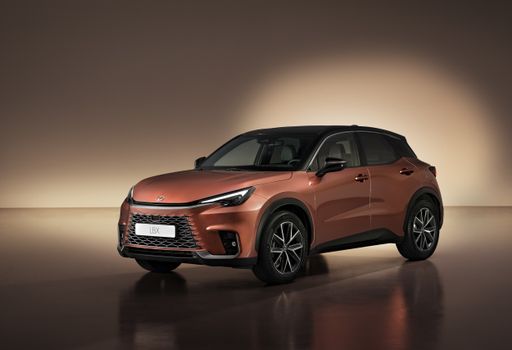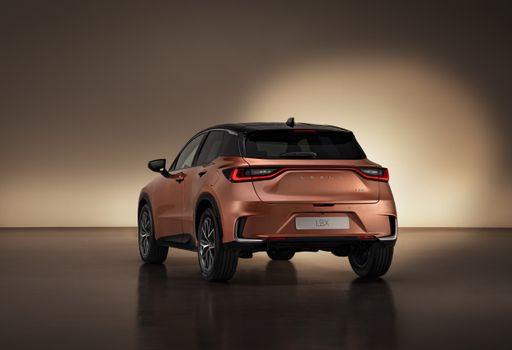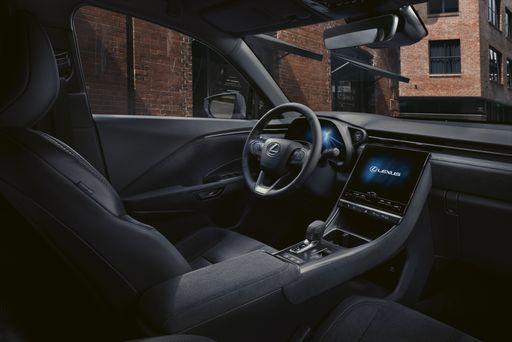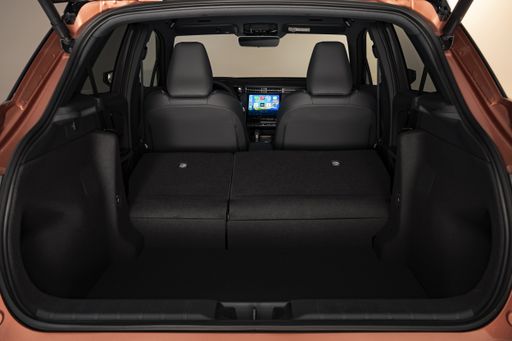Lexus LBX vs Peugeot 208 - Differences and prices compared
Compare performance (136 HP vs 156 HP), boot space and price (28300 £ vs 20700 £) at a glance. Find out which car is the better choice for you – Lexus LBX or Peugeot 208?
Costs and Efficiency:
Price and efficiency are often the first things buyers look at. Here it becomes clear which model has the long-term edge – whether at the pump, the plug, or in purchase price.
Peugeot 208 has a distinct advantage in terms of price – it starts at 20700 £, while the Lexus LBX costs 28300 £. That’s a price difference of around 7595 £.
Both cars consume an average of 4.50 L per 100 km – no difference here.
Engine and Performance:
Power, torque and acceleration say a lot about how a car feels on the road. This is where you see which model delivers more driving dynamics.
When it comes to engine power, the Peugeot 208 has a a bit edge – offering 156 HP compared to 136 HP. That’s roughly 20 HP more horsepower.
In acceleration from 0 to 100 km/h, the Peugeot 208 is to a small extent quicker – completing the sprint in 8.30 s, while the Lexus LBX takes 9.20 s. That’s about 0.90 s faster.
In terms of top speed, the Peugeot 208 performs a bit better – reaching 200 km/h, while the Lexus LBX tops out at 170 km/h. The difference is around 30 km/h.
There’s also a difference in torque: Peugeot 208 pulls clearly perceptible stronger with 270 Nm compared to 185 Nm. That’s about 85 Nm difference.
Space and Everyday Use:
Beyond pure performance, interior space and usability matter most in daily life. This is where you see which car is more practical and versatile.
Both vehicles offer seating for 5 people.
In curb weight, Peugeot 208 is minimal lighter – 1165 kg compared to 1280 kg. The difference is around 115 kg.
In terms of boot space, the Peugeot 208 offers barely noticeable more room – 352 L compared to 332 L. That’s a difference of about 20 L.
In maximum load capacity, the Peugeot 208 performs a bit better – up to 1163 L, which is about 169 L more than the Lexus LBX.
When it comes to payload, Lexus LBX slight takes the win – 475 kg compared to 430 kg. That’s a difference of about 45 kg.
Who wins the race?
The Peugeot 208 proves to be leaves the rival little chance and therefore becomes our DriveDuel Champion!
Peugeot 208 is the better all-rounder in this comparison.

Peugeot 208
Costs and Consumption
View detailed analysis
Engine and Performance
View detailed analysis
Dimensions and Body
View detailed analysis
Lexus LBX
The Lexus LBX wraps premium touches and a surprisingly spacious cabin into a compact crossover that’s perfectly at home in town or heading out on longer drives. It wears the badge with quiet confidence, serving up a refined ride and clever packaging for buyers who want Lexus polish without shouting for attention.
details



Peugeot 208
The Peugeot 208 feels like a city-savvy fox: compact, stylish and surprisingly grown-up, with a cabin that punches above its weight and enough personality to make daily commutes a little less boring. It’s a smart pick for buyers who want chic practicality without the showroom bluster — easy to park, thrifty to run and oddly fun when the road tightens up.
details




|

|
|
|
|
Costs and Consumption |
|
|---|---|
|
Price
28300 - 40000 £
|
Price
20700 - 35200 £
|
|
Consumption L/100km
4.5 - 4.8 L
|
Consumption L/100km
4.5 - 5.2 L
|
|
Consumption kWh/100km
-
|
Consumption kWh/100km
14.1 - 15.4 kWh
|
|
Electric Range
-
|
Electric Range
362 - 432 km
|
|
Battery Capacity
-
|
Battery Capacity
46 - 51 kWh
|
|
co2
102 - 110 g/km
|
co2
0 - 117 g/km
|
|
Fuel tank capacity
36 L
|
Fuel tank capacity
44 L
|
Dimensions and Body |
|
|---|---|
|
Body Type
SUV
|
Body Type
Hatchback
|
|
Seats
5
|
Seats
5
|
|
Doors
5
|
Doors
5
|
|
Curb weight
1280 - 1365 kg
|
Curb weight
1165 - 1530 kg
|
|
Trunk capacity
255 - 332 L
|
Trunk capacity
309 - 352 L
|
|
Length
4190 mm
|
Length
4055 mm
|
|
Width
1825 mm
|
Width
1745 mm
|
|
Height
1560 mm
|
Height
1430 mm
|
|
Max trunk capacity
992 - 994 L
|
Max trunk capacity
1118 - 1163 L
|
|
Payload
455 - 475 kg
|
Payload
380 - 430 kg
|
Engine and Performance |
|
|---|---|
|
Engine Type
Full Hybrid
|
Engine Type
Petrol, Electric, Petrol MHEV
|
|
Transmission
Automatic
|
Transmission
Manuel, Automatic
|
|
Transmission Detail
CVT
|
Transmission Detail
Manual Gearbox, Reduction Gearbox, Dual-Clutch Automatic
|
|
Drive Type
Front-Wheel Drive, All-Wheel Drive
|
Drive Type
Front-Wheel Drive
|
|
Power HP
136 HP
|
Power HP
101 - 156 HP
|
|
Acceleration 0-100km/h
9.2 - 9.6 s
|
Acceleration 0-100km/h
8.3 - 10.9 s
|
|
Max Speed
170 km/h
|
Max Speed
150 - 200 km/h
|
|
Torque
185 Nm
|
Torque
205 - 270 Nm
|
|
Number of Cylinders
3
|
Number of Cylinders
3
|
|
Power kW
100 kW
|
Power kW
74 - 115 kW
|
|
Engine capacity
1490 cm3
|
Engine capacity
1199 cm3
|
General |
|
|---|---|
|
Model Year
2025
|
Model Year
2023 - 2025
|
|
CO2 Efficiency Class
C
|
CO2 Efficiency Class
D, A, C
|
|
Brand
Lexus
|
Brand
Peugeot
|
What drivetrain options does the Lexus LBX have?
Available configurations include Front-Wheel Drive or All-Wheel Drive.
The prices and data displayed are estimates based on German list prices and may vary by country. This information is not legally binding.
